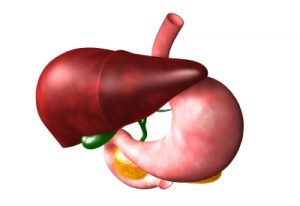Overeating Will Be Major Cause Of Liver Transplants By 2020
 Non-alcoholic fatty liver disease, a condition that sometimes requires a liver transplant, is often seen in people who are overweight or obese.
Non-alcoholic fatty liver disease, a condition that sometimes requires a liver transplant, is often seen in people who are overweight or obese.
And according to researchers from Newcastle University, overeating is expected to trump alcohol abuse as the leading cause for liver transplants by 2020.
In an interview with The Guardian, Dr. Quentin Anstee reports that non-alcoholic fatty liver disease is one of the “major” health issues in the UK, and that the rate of liver disease has shot up 400 percent in the last four decades or so.
“It’s predicted that by the end of this decade, non-alcoholic fatty liver disease will be be the most common underlying reason why people are required to have liver transplants, overtaking alcohol,” Anstee said.
A silent condition
For most people, non-alcoholic fatty liver disease may cause no symptoms. According to the Mayo Clinic, it can cause inflammation and scarring in the liver, with the worst outcome being the need for a transplant.
Poor dietary choices that contribute to high cholesterol, metabolic syndrome, obesity or type 2 diabetes might raise a person’s risk for developing a fatty liver.
About one-third of people in the UK have the condition, researchers report.
More studies will be conducted by the internationally recognized team at Newcastle University as part of a comprehensive research project on liver disease.
Source: Mayo Clinic, The Guardian
Image courtesy of dream designs/FreeDigitalPhotos.net
 Eating Disorder Self Test. Take the EAT-26 self test to see if you might have eating disorder symptoms that might require professional evaluation. All answers are confidential.
Eating Disorder Self Test. Take the EAT-26 self test to see if you might have eating disorder symptoms that might require professional evaluation. All answers are confidential.